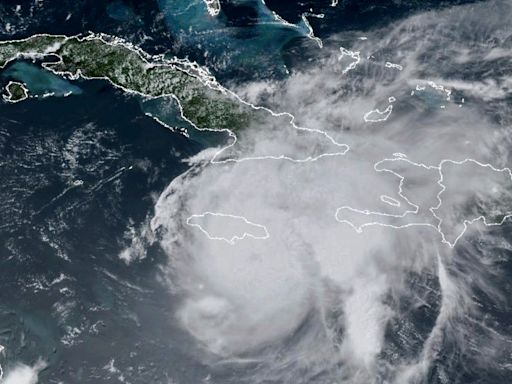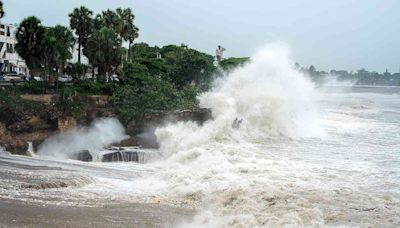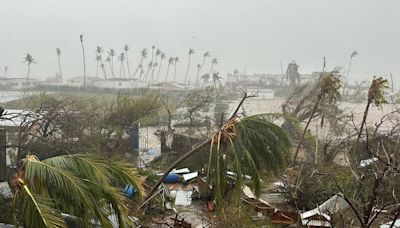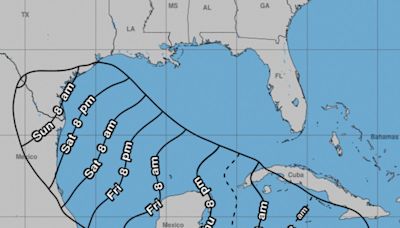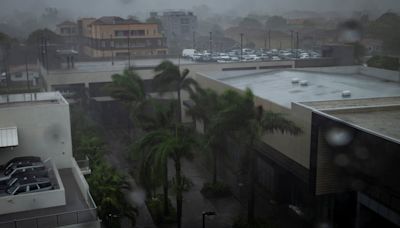Search results
- Dictionaryhurricane/ˈhʌrɪk(ə)n/
noun
- 1. a storm with a violent wind, in particular a tropical cyclone in the Caribbean: "a powerful hurricane hit the Florida coast"
Powered by Oxford Dictionaries
Jun 16, 2024 · When a storm's maximum sustained winds reach 74 mph, it is called a hurricane. The Saffir-Simpson Hurricane Wind Scale is a 1 to 5 rating, or category, based on a hurricane's maximum sustained winds. The higher the category, the greater the hurricane's potential for property damage.
Hurricanes have three main parts, the calm eye in the center, the eyewall where the winds and rains are the strongest, and the rain bands which spin out from the center and give the storm its size. Meteorologists use the Saffir-Simpson Hurricane Wind Scale to classify hurricanes into categories one to five.
Feb 1, 2020 · A hurricane is a storm system rotating around an area of low pressure, which produces strong winds and heavy rain. Technically the system is called a tropical storm if wind speeds are between 34 and 63 knots, and it is only classified as a hurricane if the wind speed exceeds 63 knots.
Oct 19, 2023 · Hurricane Dangers Hurricanes bring destruction ashore in many different ways. When a hurricane makes landfall, it often produces a devastating storm surge —ocean water pushed ashore by wind—that can reach six meters (20 feet) high and move several kilometers inland.
May 17, 2023 · Hurricanes combine unyielding winds and torrential rain to create some of Earth’s most powerful storms. When hurricanes near land, wind can cause devastating damage, even spawning...
Mar 23, 2023 · A hurricane is a large, swirling tropical storm that forms in the open ocean and moves towards land at speeds of over 72 miles per hour. Hurricanes form over the Northeast Pacific or the North Atlantic Ocean.
Oct 6, 2016 · The natural engine that is a hurricane is fueled by warm, moist air. The storms move heat from the ocean surface high into Earth’s atmosphere. They can travel thousands of miles from the...
Sep 15, 2019 · Hurricanes, tropical storms, and tropical depressions pose a variety of threats to people and property. Storm surge and inland flooding have historically been the number one and two causes of loss of life during hurricanes. Hurricanes can also bring strong winds, tornados, rough surf, and rip currents.
Warm ocean waters and thunderstorms fuel power-hungry hurricanes. Hurricanes form over the ocean, often beginning as a tropical wave—a low pressure area that moves through the moisture-rich tropics, possibly enhancing shower and thunderstorm activity.
Jun 13, 2024 · Hurricanes are the most violent storms on Earth. They form near the equator over warm ocean waters. Actually, the term hurricane is used only for the large storms that form over the Atlantic Ocean or eastern Pacific Ocean. The generic, scientific term for these storms, wherever they occur, is tropical cyclone.
